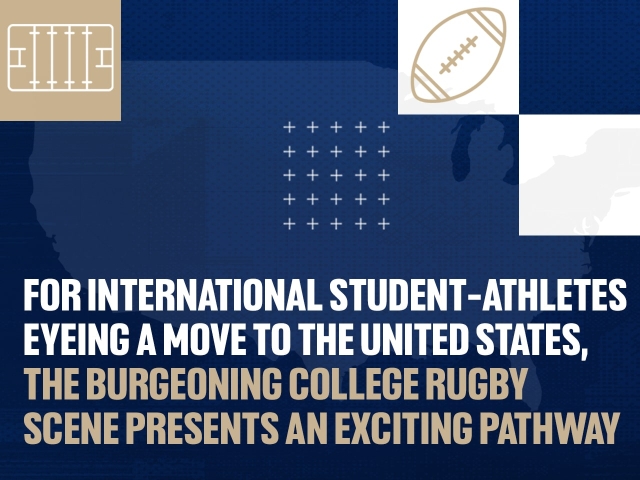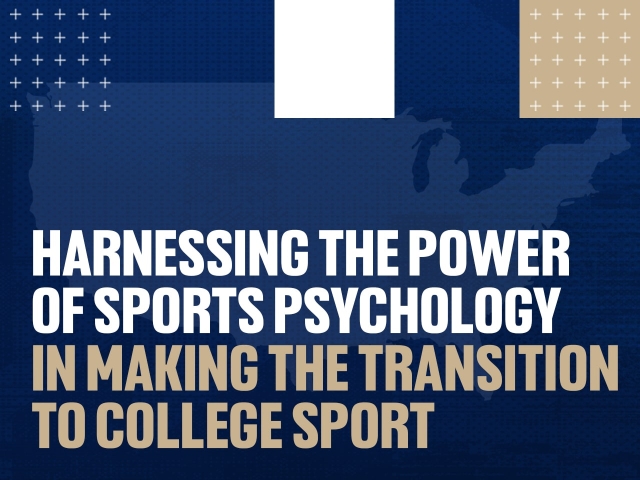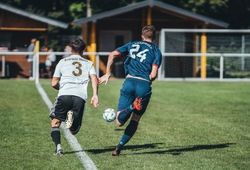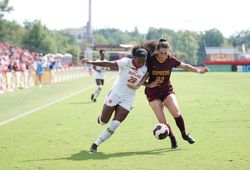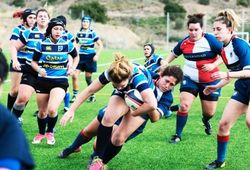Stepping onto a US college campus as a student athlete is a thrilling leap into a world brimming with opportunity, but beneath the roar of the crowd, the excitement of a new campus, and training with new teammates from all over the world, lies what can sometimes be a challenging mental landscape.
The transition to a new environment, coupled with the pressures of demanding academics and high-level sport, can be overwhelming. This is where the often-unsung hero of athletic success steps in: sports psychology. Far beyond simply "being tough," using specific techniques and strategies can equip student athletes to navigate the inevitable nerves, harness emotional control, set meaningful goals, and bounce back from setbacks – all crucial elements in not just surviving, but thriving in this challenging and rewarding chapter.
To support student-athletes with this element of the journey, we invited Brad Fullarton from Ambition Sport Psychology onto a recent webinar to share his insights, guidance and practical tips on how to incorporate psychology into their transition and athletic development. We cover a few of the key questions below with Brad and you can watch the full webinar by viewing our YouTube channel.
How can student-athletes use sports psychology to help with the transition into a new environment?
It’s important to know but probably not what you want to hear but when you do go through a period of transition, your performance might suffer and there’s a good chance it probably will.
When you go into this new environment, you're going to be playing with seniors who have been around the block a lot more than you. They’ll be bigger athletes who know the environment better and technically they might be better from all the coaching that have been done. So as a newcomer, you need to be prepared to go from being the big fish in the small pond to the small fish in the big pond.
Importantly, you also need to use the different members of your new support network when you're over there can help you to be able to cope with that. You need someone to give you that emotional support when you need it, such as a coach to give you that confidence support or technical support.
Recognising that nerves are part and parcel with sport, but sometimes they can become unmanageable and hinder performance. How do you help athletes use nerves to their advantage and what types of solutions for performance anxiety can you recommend?
We have generally have a negative association with nerves, thinking “Oh God, I'm nervous or I always play bad when I'm nerves, oh my God, why am I nervous?”
When you put so much mental energy into that fight with nerves, you’re taking the attention away from the thing that you need to do in the moment. So, it's actually really counterproductive. If I'm sitting in the changing room or the locker room or if I'm if on the 18th green and I'm trying to fight an emotion and get it away, that's going to exhaust me and it's going to take my attention away from key moments that I can actually put into … How can I do this skill? How can I really perform well?
So, the situation is working against you. I like to assign a challenge to my clients - are you willing to sit and feel nerve or are you willing to sit in that present moment and experience what that's like? Where does that show up for you in the body physiologically and does anything happen like your hands are sweating or maybe your heart rate's a bit up. Do you do anything behaviourally like maybe a bit of avoidance and mentally what's going on with your thoughts and feelings? All of a sudden, we've got this really deep understanding of why nerves are showing up for us, where it shows up and that just means that we're more prepared for it to show up in the big moments. So practicing it on a really small level means that when I'm on the 18th green or when I'm taking a penalty, or when I'm serving for the match, I am more ready to experience nerves and when I'm more willing to do that I'm not in this fight right I’m not in this mental battle which means there's a better chance of me being able to perform the thing that I want to do well in that moment.
Another is coping with setbacks and on a few occasions, young athletes will find the move to the States a difficult challenge, whether that’s being homesick, not getting picked for the 1st team or the balance between playing and studying. What advice can you offer on these aspects?
I encourage my clients to embrace and adopt a growth mindset, where you treat a setback or mistake as an opportunity, and go out with your comfort zone to see the bigger picture. You need to be willing to learn and develop. So, when you are faced with a setback, can you try and embrace some values and behaviours that align more with that, because the way you bounce back is more important than the setback in itself.
The buzzword today in sports psychology and the media is, is resilience or mental toughness. Personally, I prefer resilience, but that's literally what resilience is. It's the ability to bounce back from a mistake, from a failure, from a loss. And I can bet you that your lecturers, your teachers, your coaches, and your teammates will be looking for how people deal with mistakes. Do you want to be the person that goes in the huff when they don't get packed, displaying the negative body language, such as punching the bench or kicking the water bottles.
Or do you want to be someone who's willing to reflect and try and deepen why this thing has happened? You can then start to make sense of it so that you can limit the chances of it happening again.
You can watch the full webinar recording below, covering many different topics on the theme of sports psychology, and we hope you can take some of this advice and guidance on board as you embark on your student-athlete joruney.
To get in touch with Brad, you can reach out to him on the following channels:
